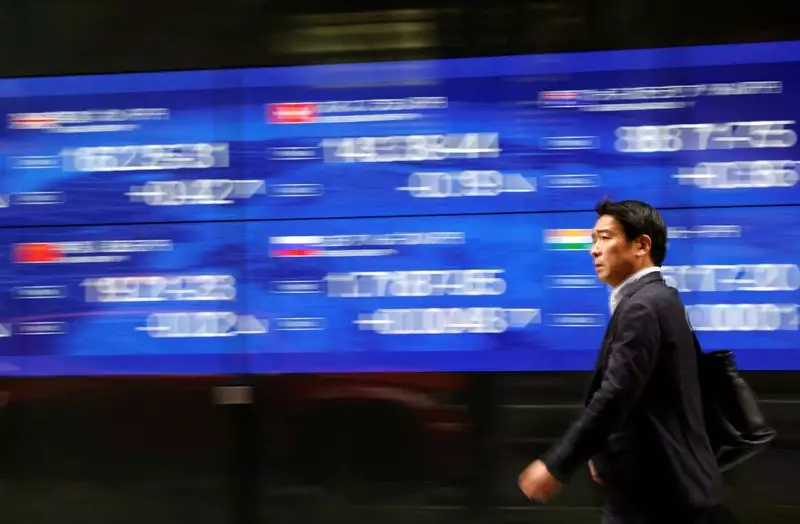In recent trading sessions, the euro has faced significant downward pressure attributed to escalating political instability in France. Key developments suggest that Prime Minister Michel Barnier’s government is on shaky ground, with a looming no-confidence vote that could have far-reaching implications for both the eurozone and global financial markets. This political turbulence contrasts starkly with the performance of tech stocks, which have offered a robust rally to global equities amidst the turmoil, highlighting the complex interplay of various market dynamics in the current climate.
The surge in technology stocks, particularly in the U.S., has enabled investor sentiment to remain resilient, even as political risks mount in Europe. Analysts contend that this divergence in performance can be boiled down to the differing narratives within these markets, particularly the contrasting pace of economic recovery and investor confidence in tech innovation against a backdrop of political uncertainty in regions like France.
The dollar has strengthened significantly in light of recent remarks made by former President Donald Trump, indirectly influencing global currency markets. Trump’s stern warning to BRICS nations against attempting to dethrone the U.S. dollar reinforces the greenback’s strength. This situation has incited a sense of urgency within investment circles, as market participants attempt to gauge the future direction of U.S. monetary policy—a task that is further complicated by ongoing political developments both domestically and globally.
As traders closely watch the Federal Reserve’s next moves, speculations around potential interest rate cuts have begun to shape market sentiment. Indeed, a quarter-point reduction seems to be on the horizon, particularly in view of the crucial payrolls report set to be unveiled shortly. Wall Street analysts emphasize that the Federal Reserve’s actions, combined with the implications of U.S. fiscal policy under the current administration, are pivotal in determining market trajectories.
Back in France, the political landscape is rife with uncertainty. The far-right National Rally (RN) party has positioned itself to support the impending no-confidence motion against the Barnier government. RN president Jordan Bardella’s comments underscore the precarious situation facing the current administration, which could catalyze a broader wave of discontent throughout the eurozone.
Market analysts suggest that a government collapse would not only exacerbate volatility within the French markets but would also likely feed into broader economic sentiment across Europe. The ripple effects could see the euro weaken further against major currencies, including the Swiss Franc, as political instability raises questions about France’s economic health and future governance.
In Asia, a contrasting scene has been noted as Chinese stocks experienced gains, buoyed by positive manufacturing data that suggests resilience in the Chinese economy. The Hang Seng index edged upward, reflecting a selective optimism predominantly associated with the tech sector. Nonetheless, the Japanese yen remains under pressure, which adds a layer of complexity for investors navigating international markets currently dominated by U.S. dollar strength.
Despite these dynamics, markets across the globe remain cautious. The recent performance of cryptocurrencies such as Ethereum and Bitcoin indicates a speculative frenzy amidst broader market uncertainties, while the decline in gold prices signals a retreat from traditional safe havens in light of the strong dollar.
The confluence of political dynamics in Europe and U.S. monetary policy will undoubtedly shape the investment landscape in the days to come. As European markets grapple with internal crises, global investors will be closely monitoring responses from the Federal Reserve. Should the Fed opt for a dovish stance, the prospect of a ‘Santa Rally’ during the festive season could become a reality. Conversely, continued political disarray in France poses unexpected risks that could disturb this outlook.
The interplay between political events and market reactions is increasingly complex. Investors must stay agile, balancing between opportunities presented by tech advancements and the weight of geopolitical uncertainties. In this multifaceted environment, the path forward remains uncertain, making prudent and studied approaches to investment more crucial than ever.

